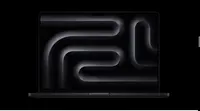Can a Chromebook be hacked?
We know that the most hacked computers are Windows computers, but do we know if Chromebooks can get hacked?
For a decade now, Windows computers are the most hacked computers among all the available ones. But it does not mean that all other computers such as Chromebooks can’t be hacked. Every computer can be hacked, then Chromebooks can be hacked too. But is it easy to hack a Chromebook? How are they hacked exactly? Using my experience in computer security I’ve made searches and analyses on Chromebooks to answer these questions.
Can Chromebooks get hacked?
Chromebooks are made by Google, which is a big company with big concerns about the security of their computers, they are doing the best they can to make Chromebooks secure. But unfortunately, every computer can be hacked, and a security expert with great knowledge can certainly find a new security breach on Chromebooks to be able to hack them. But as soon as Google will find out that someone is using a security breach to hack Chromebooks, they will develop and release a security patch to fix the issue.
Your Google account can be hacked
To use a Chromebook you need a Google account, this account will be linked to your Chromebook, and to log in to your Chromebook you will need to use the same credentials as your Google account. Therefore if someone hacks your Google account and finds the credentials, he is able to use them to connect to your Chromebook. You need to be careful about your Google account for your Chromebook to be more secure.
Your Google account can be hacked by someone, but it can’t be because of a security breach at Google, it is more likely to be because of an issue on your side. It can be malware on one of your computers or smartphones, but also a fake email containing a bad link that you clicked on. Be cautious about everything that does not seem normal, and do not download anything coming from unknown sources and you will be fine.
Are Chromebooks easy to hack?
Windows computers are known to be the computers easiest to hack, it is mainly because there also are the most used and bought ones. The security community around Windows is very active, there are a lot of known vulnerabilities and issues in Windows, therefore it’s not difficult for a hacker with good knowledge about Windows to understand these vulnerabilities and to use them to hack a Windows computer.
On their side, Chromebooks are less famous computers and the security community is not very active around Chromebook. So for someone that wants to hack a Chromebook, it’s more difficult to find a vulnerability that they can use. The hackers have to find a security issue by themselves, but it’s very hard to do so, a lot of skills and time are needed to find any vulnerability. It’s the main reason why Chromebooks are not easy to hack.
Moreover, Chromebooks are using mostly cloud-based applications, which means that the applications are storing all the data online on the cloud and that most of the components used by the application are also stored on the cloud. A hacker targeting this kind of application would need to target the cloud part of this application to be able to retrieve sensitive data, which is way more complicated.
How to know if your Chromebook is hacked?
It’s difficult to give a specific guide to find out if your Chromebook is hacked or not, but there are usually known symptoms of a hacked Chromebook. Here are some weird behaviors that happen on hacked Chromebooks
- Your webcam turns on unexpectedly. A camera that turns on without any of your actions should always trigger a red flag to you When your camera is turned on, there is a little light also turned on next to the webcam
- Your mouse is moving by itself. This would mean that a hacker had taken the control of your Chromebook
- Applications are launched without any of your actions. It can be a hacker controlling your Chromebook, but also that your Chromebook is affected by a virus or malware.
- Network requests are sent to an unknown web server. This is way more complicated to find out, but if your Chromebook is hacked or affected by a virus, then some unexpected network request could be made by the attacker to steal your data.
If you find that your Chromebook is hacked, the first thing to do is to disconnect your Chromebook from the network. By disconnecting it, you are sure that none of your data will be sent over the network, and the attacker will not be able to take control of your Chromebook anymore.
How to know if a Chromebook has a virus?
As I said before, if some applications start by themselves, it could mean that your Chromebook is affected by a virus. The application with the most chance to be affected by a virus is Google Chrome, if it is the case then it does not mean that your Chromebook is hacked, it could be a small virus or malware that can be easily removed.
If Google Chrome has some weird behavior on your Chromebook, for example, if it is opening a new tab by itself, here are some checks to do to fix the issue:
- Most of the time, you see these wrong behaviors on Google Chrome because of an extension you added. Try to disable each one of your extensions and see if there is any improvement.
- Delete the cache of your Chromebook. It will erase any data that a malicious website could have stored on the cache of Google Chrome, you can delete the cache in the control panel of your Chromebook.
- Restart your Chromebook. Restarting your Chromebook will kill any running web application that could be causing the issue.
- Factory reset your Chromebook. If you can’t fix the issue, you still can factory reset your Chromebook, so all the installed applications and data will be deleted. Be sure to save any sensitive data on an external drive before processing the factory reset.
You might also want to check if someone can crash a Chromebook.










Post your comment